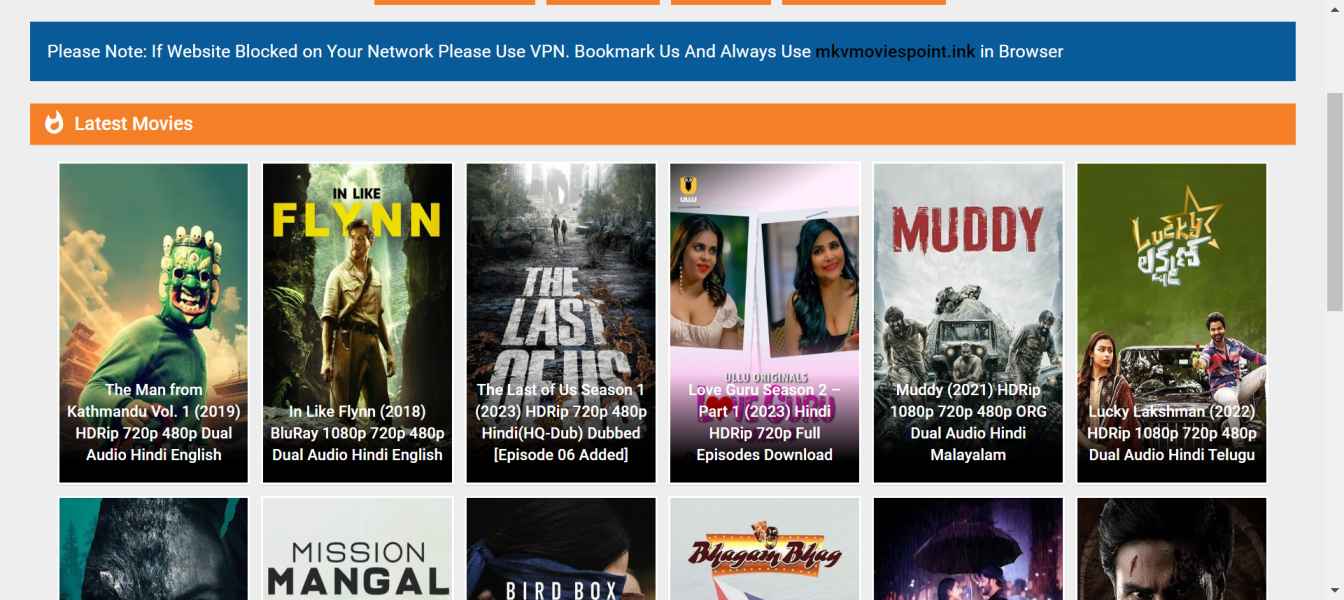No Results For MKV Movies? Try This Guide!
Is it truly impossible to locate what you seek? The digital realm, a vast ocean of information, often hides the very treasures we crave, and sometimes, the search yields nothing but echoes of frustration.
The cryptic message, We did not find results for:, is a familiar sting. Its the digital equivalent of a dead end, a closed door in the labyrinthine corridors of the internet. The phrase, followed by, Mkvmoviespoint your ultimate guide to mkv movies and more., and then the almost patronizing, "Check spelling or type a new query," paints a picture of a search gone awry. The user, armed with intention and perhaps a specific query, encounters only emptiness. This experience is a common one, experienced by countless individuals navigating the web daily. The reasons behind such search failures are multifaceted, ranging from simple typographical errors to deeper issues related to search engine indexing and the availability of relevant content.
The initial prompt directs us to examine the potential causes of this ubiquitous digital roadblock. Before delving into potential solutions, however, consider a hypothetical scenario. Imagine a user diligently attempting to locate information about a newly released, highly anticipated independent film. The user types in the film's title, perhaps including the director's name, and presses "Enter." The screen displays the unwelcome message: "We did not find results for:". The user, undeterred, reviews the query for possible typos. Still nothing. Frustration mounts. The expectation of readily available information, a hallmark of the modern age, is shattered.
The second part of the message, Mkvmoviespoint your ultimate guide to mkv movies and more., provides a specific search query. This phrase suggests a search related to MKV movies, a file format commonly used for storing high-definition video content. This hints at a search involving downloading or streaming movies, a practice that brings forth significant legal and ethical considerations. This implies the original search was likely related to finding and accessing movies in MKV format. Let's say the user was looking for a specific film they had read about, and wanted to find a download. The search for this film returned this error. The user could be attempting to stream or download a movie, potentially violating copyright laws. This highlights the delicate balance between the desire for access and the protection of creative rights in the digital age.
The final phrase, Check spelling or type a new query, suggests the typical solutions offered by search engines. The user is invited to re-evaluate the query for errors. This suggests that the lack of results might be attributable to a simple mistake in the search terms. However, this seemingly simple suggestion often proves inadequate. This is a standard prompt given by search engines when they cannot find the desired results. However, this does not acknowledge the fact that the content sought by the user might not be available online or, indeed, accessible to the search engine's index at all.
The implications of this seemingly innocuous message extend far beyond the immediate inconvenience of a failed search. The experience can erode trust in the digital environment. Users grow accustomed to the instant gratification of information retrieval. When those expectations are unmet, it fosters feelings of powerlessness and frustration, a sense of being lost in an ocean of information that simultaneously promises everything and delivers nothing. More importantly, it can direct users toward illicit or unsafe websites.
Consider the technical underpinnings of this situation. A search engine's effectiveness rests on its ability to crawl, index, and rank content. Crawling involves the automated discovery and analysis of web pages. Indexing entails organizing and storing the information collected during the crawling process. Ranking is the process of determining the relevance and importance of search results. A failure at any of these stages can result in the "We did not find results for:" message. Web pages might be inaccessible to crawlers due to technical issues. The pages may simply not exist on the web. The content might not be indexed properly, meaning that the search engine is unaware of its existence. Or, the ranking algorithms might fail to identify the content as relevant to the query.
The user's interaction with the search engine can be affected by factors beyond the technical realm. The search query itself plays a pivotal role. The clarity and specificity of the query determine the precision of search results. Vague searches lead to irrelevant results. This is where advanced search techniques like Boolean operators become vital. Boolean operators such as AND, OR, and NOT allow users to refine their search queries. Using the word "AND" narrows the search. Using "OR" widens the search. Using "NOT" excludes specific terms. These can vastly improve the accuracy of search outcomes.
The quality and availability of online content also influence search results. The internet is not an open library with every piece of information available. Many websites restrict access to their content, requiring user registration or a subscription. Some websites deliberately obfuscate their content to avoid being indexed by search engines. This might be to prevent copyright violations or to protect their business models. The digital landscape is therefore an uneven playing field, and the search engine is a tool that attempts to navigate that unevenness.
There is also the issue of censorship and content filtering. Government authorities or private companies might filter or block specific websites or content. Search engines might comply with such restrictions, leading to the suppression of search results in certain regions or under specific conditions. This raises critical questions about freedom of information, censorship, and the control of knowledge in the digital age. This adds further complications to the simple act of searching.
The user interface of the search engine is another vital factor. The design, functionality, and algorithms of the search engine affect the search experience. Poorly designed search interfaces make it difficult for users to formulate effective search queries. Inaccurate algorithms can lead to irrelevant results. This includes the use of personalized search results, a feature where search engines tailor results based on user data. While personalization can be helpful, it can also create "filter bubbles", exposing users only to information that aligns with their existing beliefs. This can create a distorted view of the world and limit exposure to different perspectives.
In the context of the "Mkvmoviespoint" query, there is the additional possibility of legal action against websites offering pirated content. Many websites providing illegal downloads are removed quickly. This is one reason the original search, looking for a movie in MKV format, may have failed. It is crucial to remember that downloading or streaming copyrighted content without permission is a violation of copyright laws and can carry severe penalties.
Beyond the technical issues, search queries, and legal concerns, the very nature of the internet can also cause a user to get this result. The internet is in constant flux, with websites and content being created, updated, and deleted daily. This dynamic nature makes it challenging for search engines to keep up. Websites might disappear, be redesigned, or become inaccessible. The search engine might not have crawled the site recently. This results in outdated information, broken links, and a lack of relevant search results.
In this digital age, the ability to effectively search the internet is a crucial skill. Individuals require the ability to construct effective queries, understand the principles of search engine indexing, and evaluate the credibility of online information. This requires critical thinking, media literacy, and a deep understanding of the internet's potential and its limitations. The "We did not find results for:" message is a potent reminder of the complexities of the digital world. It challenges us to refine our search techniques, to become more discerning consumers of information, and to be aware of the potential limitations of the tools we use daily.
The user has more options than merely rephrasing their search query and hoping for better results. They can also: explore different search engines, each of which uses its own unique algorithms. They can use advanced search operators to refine their search. They can examine the source of information and its credibility. They can consider the possibility that the information might not exist. They could visit the website, or look on another website.
For the user who encounters the message We did not find results for:, the journey doesnt end there. It is a lesson in perseverance, a call for critical thinking, and a reminder that the digital realm, while vast, is not all-encompassing. The Mkvmoviespoint scenario is just one potential scenario, but it points to broader issues. The solution lies in understanding, adaptability, and the commitment to navigate the digital world with intelligence and awareness. A failed search is not the end of the road; it is the beginning of a deeper exploration.

MKVMoviesPoint Your Ultimate Guide To Downloading Movies And TV Shows

MKVMOVIES Point Your Ultimate Destination For Movie Enthusiasts

MKVMoviesPoint Your Guide to Streaming and Downloading Movies The